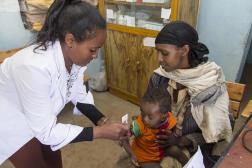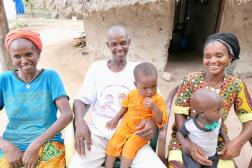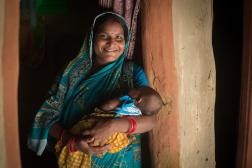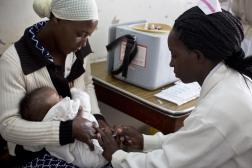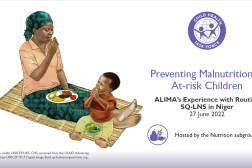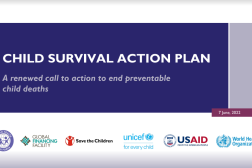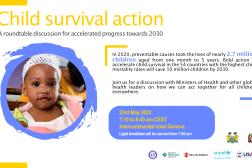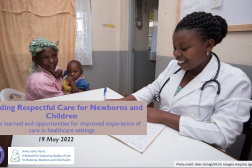Upcoming Events
Currently there are no upcoming events scheduled.
Past Events
- | Online
Integrating the Private Sector into National Child Health Programs and Reporting: A Webinar Series
The Private Sector Engagement, Monitoring and Evaluation and Quality of Care subgroups of the Child Health Task Force are hosting a three-part webinar series on integrating the private sector into national child health programming. This includes the health management information system (HMIS) and improving the quality of care of children and newborns in private facilities.
- | Online
Addressing Food Insecurity for Children through a Multisector Approach: Learning from Feed the Future Senegal Kawolor
The Child Health Task Force's Nutrition subgroup hosted a webinar to learn from the Feed the Future Senegal Kawolor project about their experience using a multi-sectoral approach to addressing food insecurity and undernutrition.
- | Online
Improving Quality of Newborn and Child Health Services in Private Facilities: Lessons from Manyata Project in India
The Quality of Care and Private Sector Engagement subgroups co-hosted a webinar to share lessons from the Manyata project about their experience with quality improvement in private facilities in India. Manyata is a quality improvement and quality assurance program for private sector childbirth facilities led by the Federation of Obstetric and Gynecological Societies in India (FOGSI).
- | Online
Forecasting of RMNCH Medical Products: Improving Quantification of Child Health Commodities
The Newborn and Child Health Commodities subgroup hosted a webinar to present the updated RMNCH forecasting supplement to assist program managers, service providers, and technical experts to conduct quantification of priority medicines for child health.
- | Online
Preventing Malnutrition in At-risk Children: ALIMA's Experience with Routine SQ-LNS in Niger
The Nutrition subgroup of the Child Health Task Force hosted a webinar to learn from The Alliance for International Action (ALIMA) about their experience implementing a lifesaving intervention for at-risk, malnourished children.
- | Online
Members' Meeting: Child Survival Action
The Child Health Task Force Secretariat hosted a members' meeting to share progress on the initiative to renew action for child survival. In 2020, preventable causes took the lives of nearly 2.7 million children aged from one month to 5 years.
- | Geneva, Switzerland
Child Survival Action: A roundtable discussion for accelerated progress towards 2030
WHO, UNICEF, USAID, GFF, Save the Children, PMNCH, the Child Health Task Force and the Ministries of Health from Sierra Leone and Tanzania hosted a roundtable to discuss a renewed commitment, investment and action for child survival, especially in the post-newborn, under-five period.
Find the recording, presentation slides, and event summary below.
- | Online
Providing Respectful Care for Newborns and Children: Lessons learned and opportunities for improved experience of care in healthcare settings
The Quality of Care subgroup of the Child Health Task Force and the Network for Improving Quality of Care for Maternal, Newborn and Child Health hosted a webinar to highlight the need for improved providers’ competencies to ensure high quality, people-centered and responsive care is provided to newborns, children and their families.

